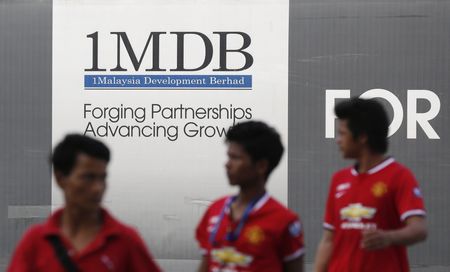By Gibran Naiyyar Peshimam and Asif Shahzad
ISLAMABAD (Reuters) -Pakistan’s central bank raised its policy rate by 250 basis points to 12.25% in an emergency meeting on Thursday, the bank said in a statement, the biggest hike in years.
The State Bank of Pakistan (SBP) cited a deterioration in the outlook for inflation and an increase in risks to external stability, heightened by the Russia-Ukraine conflict, as well as domestic political uncertainty.
The hike was unscheduled as the next monetary policy committee (MPC) meeting was set for late April, but the bank had warned last month that it could meet earlier than expected to safeguard external and price stability.
“Since the last MPC meeting, the outlook for inflation has deteriorated and risks to external stability have risen,” SBP said in a statement on Thursday.
“Futures markets suggest that global commodity prices, including oil, are likely to remain elevated for longer and the (U.S.) Federal Reserve is likely to increase interest rates more quickly than previously anticipated,” the statement added.
Domestically, the bank said the March inflation turnout was higher than expected and political uncertainty, which has peaked with a standoff between Prime Minister Imran Khan and the opposition, had worsened matters.
“Heightened domestic political uncertainty contributed to a 5 percent depreciation in the rupee and a sharp rise in domestic secondary market yields as well as Pakistan’s Eurobond yields and CDS spreads since the last MPC meeting,” the bank said.
It also pointed to pressure from a sharp drop in foreign currency reserves. Reserves held by the central bank dropped by $728 million to $11.3 billion by April 1, compared with $16.2 billion on March 4.
The bank said the decline had largely been due to debt repayments and government payments pertaining to the settlement of an arbitration award related to a mining project.
Some of the decline is expected to be reversed as creditors renew loans, the bank said, assuring that Pakistan’s external financing needs in FY22 are fully met from identified sources.
It said average inflation forecasts had been revised upwards to slightly above 11 percent in FY22.
The SBP is in the process of taking further action to reduce pressure on inflation and the current account, including increasing rates on refinancing schemes.
“This step of SBP was also necessary as market yields of T-bills were not in line with policy rate, creating an abnormal situation,” said Muhammad Sohail of Topline Securities.
Pakistan’s government raised 645 billion Pakistani rupees ($3.43 billion) in a treasury bill auction on Wednesday, with 12-month yields at 13.3%.
($1 = 188.0000 Pakistani rupees)
(Reporting by Asif Shahzad and Gibran Peshimam in Islamabad; Writing by Alasdair Pal; Editing by Raissa Kasolowsky, David Holmes and Mark Porter)











